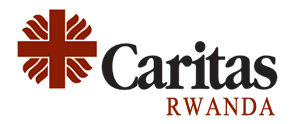
PAC PROJECT
“Alleviating poverty of vulnerable refugees and host community members through sustainable livelihoods and self-reliance following graduation approach” is a three-year project (August 2021 – July 2024), funded by the US government BPRM (Bureau of Population, Refugees, and Migration) up to 1,966,335 $ and implemented by World Vision (Lead) and Caritas Rwanda (sub-grantee) which are the poverty Alleviation coalition (PAC).
It is designated to build the resilience to 1500 most vulnerable households of refugees of Nyabiheke and Kiziba camps as well as their host communities. There is a close collaboration with UNHCR and the government of RWANDA, to ensure that they graduate from out of humanitarian assistance and extreme poverty over the project lifespan.
The project goals
At least 1050 refugees’ households and host communities are self-reliant and graduated from extreme poverty to contribute to the social and economic landscape of Rwanda by 2024.
This will be achieved through 4 pillars:
- Social protection: includes preventive, protective and promotive mechanisms to support basic income security such as consumption support, crisis relief, and access to health and education.
- Livelihoods promotion: ensures regular and diverse income streams for households to support consumption, asset accumulation, and economic empowerment, especially for women. Interventions include asset or cash transfers for a viable livelihood or linkages to formal employment, technical and business skills training, and access to markets.
- Financial inclusion: provides improved income and risk management and financial empowerment. Interventions typically include access to formal or informal savings facilities, credit and insurance mechanisms, accompanied by financial literacy training.
- Social empowerment: equips families with a confident mindset and promotes community inclusion and positive behavior change. Interventions include life skills training, social integration, and coaching that cut across all four pillars, underpinned by a commitment to gender equality.
Key interventions
Households are profiled and appropriately support to meet their basic needs.
Ultra-poor households from refugees and host communities have diversified livelihoods that are sustainable, and they are given 800.000 Rwf as a grant to start their business. Participants have access to increased financial inclusion and demand for financial inclusion.
Participants will be trained on financial literacy and saving group model to promote the financial services. The Micro Finance Institutions will be mobilized to develop the digital packages responding to refugees and host populations needs. Participants develop a positive mind set through mental health psychosocial support skills acquisition.
Persons of concern and host communities are practicing good governance, protection, and social inclusion.
Target
| Target | Camp | Host community |
| 800 | 550 Nyabiheke | 250 Gatsibo district |
| 700 | 500 Kiziba camp | 200 Karongi district |
|
|
|

